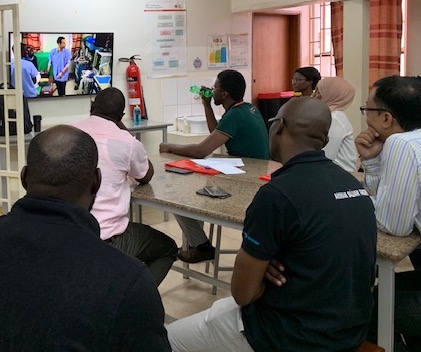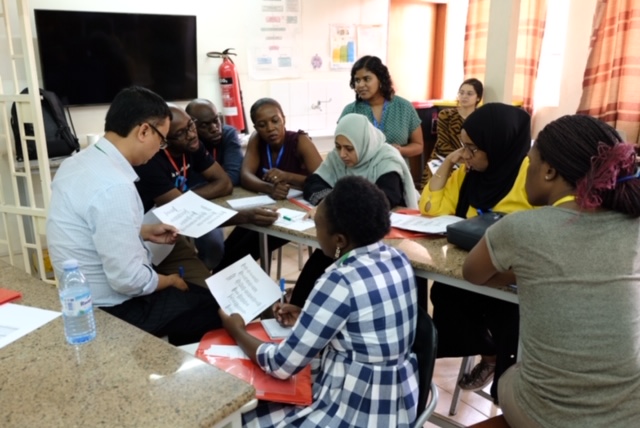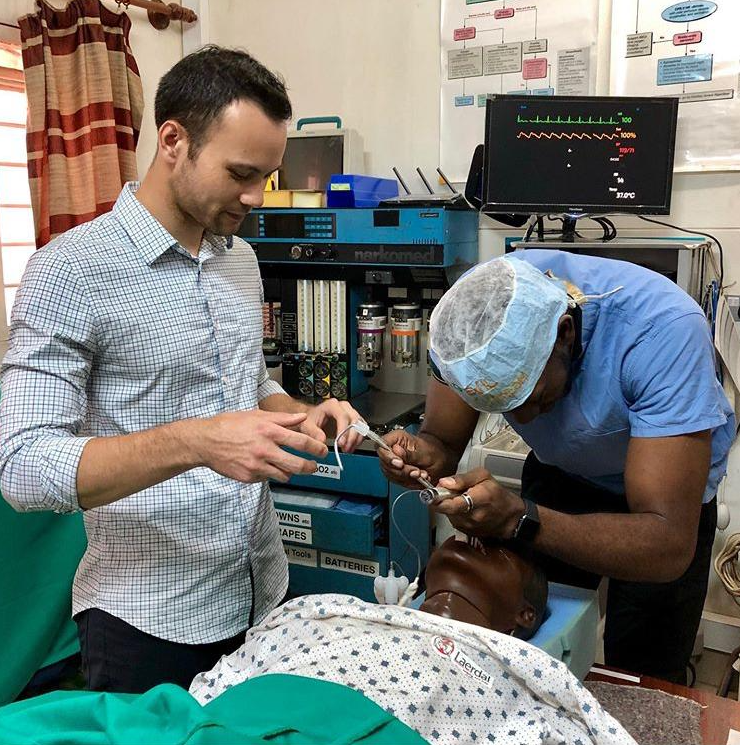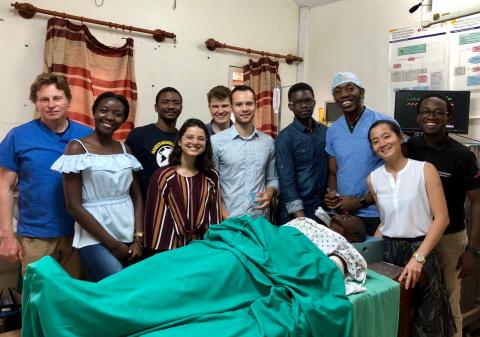For more than a decade, UCSF has been collaborating with Makerere University and more recently Busitema University with the shared goal of improving medical education available to health professionals in Uganda and beyond. A large part of this effort has been focused on simulation training. Simulation has become an invaluable tool in the armory of educators across the globe, and may be practical and underutilized tool for resource-constrained learning environments.
This ongoing collaboration has supported the creation of two simulation facilities in Uganda (Kampala and Mbale) and a novel simulation curriculum tailored to the resource-constrained practice and learning environment. An assessment of this experience was recently published in Simulation in Healthcare April 2019.
The UCSF Anesthesia Division of Global Health Equity (ADGHE) also recently partnered with the World Federation of Societies of Anaesthesiologists (WFSA) to establish a Simulation Fellowship opportunity for anesthesia educators from LMICs.
In May 2019, the first two graduates of this program, Dr. Cornel Sendagire and Dr. Fred Bulamba, alongside ADGHE faculty lead Maytinee Lilaonitkul and UCSF Anesthesia Faculty Jan Hirsch created and piloted a teaching course aimed at training anesthesia medical educators with the skills to help them deliver simulation-based learning in low and middle-income countries (LMICs). Nearly 20 doctors, nurses and anesthetic officers from Uganda, Tanzania, Rwanda, and Nepal attended the three-day course.
The first day of the course was a classroom-based session. The knowledge and enthusiasm of the delegates and faculty were impressive. Over the first day, we learned about the theories and processes underpinning simulation-based education. This created a foundation for the next two days, which were focused on practical skills. The delegates designed and delivered simulation-based teaching sessions to each other. On the final day, it was the responsibility of delegates to deliver simulation teaching sessions to postgraduate masters students. The sessions were part of the student's curriculum, so the stakes were high for the delegates. Everyone rose to the occasion and delivered high-quality sessions.
As a Visiting Scholar in the Anesthesia Division of Global Health Equity (ADGHE), I have had the opportunity to support several ongoing projects with collaborators in Uganda. I was excited to help pilot this course and learn more about the theories and processes involved in the simulation sessions that I had regularly been a part of my training in the U.K. Additionally, I was fascinated to learn how the delegates were planning to use the skills they had acquired through the course in their own institutions to tackle problems they had identified. Simulation can take many forms and the creativity of delegates to use the resources available to them was inspiring.
Working on the course was one of the most fulfilling experiences of my career so far. This has reaffirmed my commitment continue to support development of medical education infrastructure across the globe as necessary to achieve equity of health outcomes universally.
— Post by Dr. Will Booth, Visiting Scholar, UCSF Anesthesia Division of Global Health Equity



